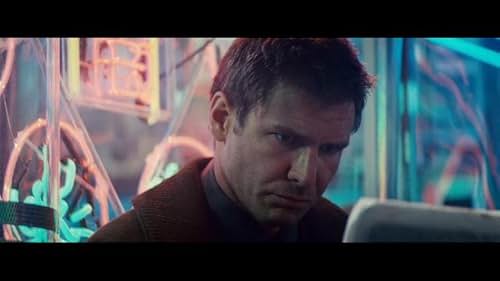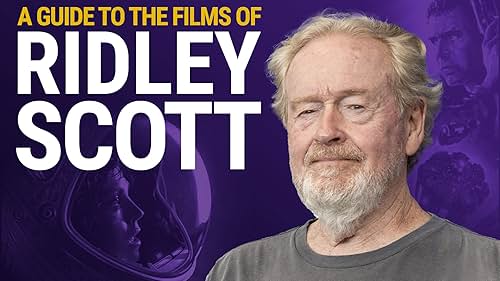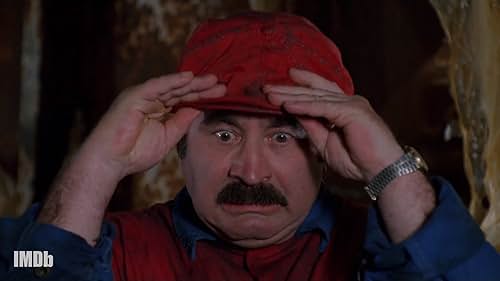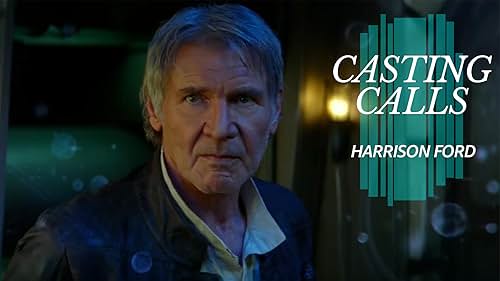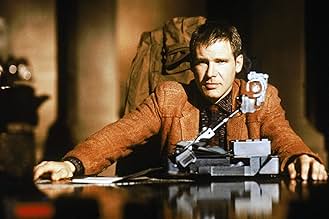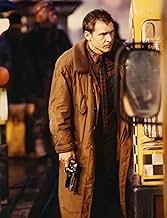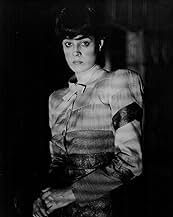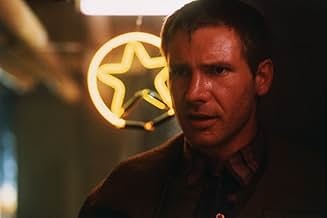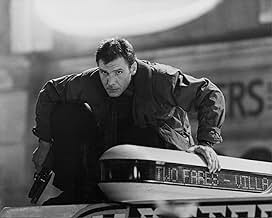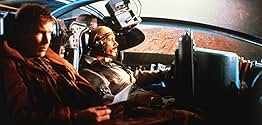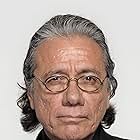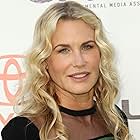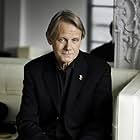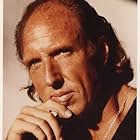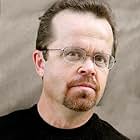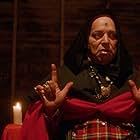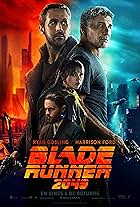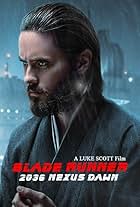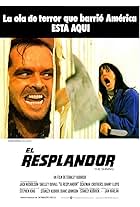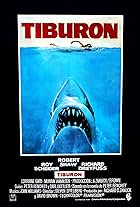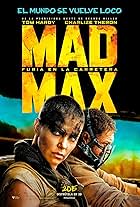Un blade runner debe encontrar y retirar a cuatro replicantes que robaron una nave en el espacio y han regresado a la Tierra para encontrar a su creador.Un blade runner debe encontrar y retirar a cuatro replicantes que robaron una nave en el espacio y han regresado a la Tierra para encontrar a su creador.Un blade runner debe encontrar y retirar a cuatro replicantes que robaron una nave en el espacio y han regresado a la Tierra para encontrar a su creador.
- Nominado para 2 premios Óscar
- 13 premios y 22 nominaciones en total
Bob Okazaki
- Sushi Master
- (as Robert Okazaki)
Remembering Rutger Hauer (1944-2019)
Remembering Rutger Hauer (1944-2019)
We celebrate the life and legacy of Rutger Hauer, the award-winning actor best known for Blade Runner and The Hitcher.
Argumento
¿Sabías que...?
- CuriosidadesDirector Sir Ridley Scott regards this movie as probably his most personal and complete movie.
- Pifias(at around 9 mins) When we see Deckard waiting for his noodles, he is reading that day's newspaper. Later in Leon's apartment (at around 25 mins), the same newspaper is seen in one of the drawers, except it is old and soiled, as if it has been there for years. We know they are the same since both newspapers have the same headline about farming on the moon.
- Créditos adicionalesIn the "happy ending" Theatrical/International cuts, the credits play over the gorgeous scenery. In later Director/Final cuts, they play over a normal black background.
- Versiones alternativasAll U.S video tape releases before January 1993 are the unrated version and contain the extra violence in the Euro-release that's not seen in the 117 minute American theatrical release:
- When Roy attacks Tyrell we clearly see him pushing his thumbs into Tyrell's eyes, and blood spurting out
- When Pris (Daryl Hannah) attacks Deckard, she reaches down and grabs him by the nostrils
- When Deckard shoots Pris, he shoots 3 times instead of 2
- When Roy pushes the nail through his hand, there is a shot of the nail coming through the skin on the other side.
- ConexionesEdited into 5 Second Movies: Blade Runner (2009)
- Banda sonoraHarps of the Ancient Temples
Composed by Gail Laughton
Performed by Gail Laughton
Courtesy of Laurel Records
Reseña destacada
Blade Runner, directed by Ridley Scott and based on Philip K. Dick's novel Do Androids Dream of Electric Sheep, is a Sci-fi slash Noir film about a cop named Rick Deckard (Harrison Ford) in a decrepit 2019 Los Angeles whose job it is to "retire" four genetically engineered syborgues, known as "Replicants". The four fugitives, Pris (Daryl Hannah), Zhora (Joanna Cassidy), Leon (Brion James), and their leader, Roy Batty (Rutger Hauer), have escaped from an off-world colony in order to find their creator and bully him into expanding their pre-determined four year life span. This film originally flopped when it came out in 1982, but since has become a widely acclaimed cult classic with a director's cut to boot. A large part of the success that this movie has received can be attributed to its ability to operate on many different levels.
Ridley Scott's hauntingly possible depiction of what might become of Los Angeles down the line is absolutely brilliant. It captures elements of Noir with its urban atmosphere of decadence, lighting, and characters neither clearly defined as good nor evil. Corruption is everywhere. The garbage-littered streets and permanence of dark and rain give us the sense that we've seriously screwed up the atmosphere, and the impression that all respectable human beings have fled to the off-world colonies, leaving only the scum of the earth behind.
There is a hint of style from the 40's, especially with respect to cars, costumes, and music. Rachael's entire outfit, including her hair, screams the 40's.
The soundtrack, arranged by Vangelis (who won an Oscar for his Chariots of Fire score), consisted mainly of Jazz and Blues. This functioned to represent a dark, moody world of uncertainty and pessimism.
The special effects were exceptional. Much of the set was pulled off using models. In my opinion, sets made by hand require leagues more of skill and are much more impressive and realistic than those computer generated. These guys really knew what they were doing. I was especially fond of the pyramidesque Tyrell Corporation building, which hinted at the god-like presence of Eldon Tyrell (Joe Turkell), the creator.
The script (Hampton Fancher, David Peoples, and of course Phil Dick) worked for me, as well as the actors who gave voice to it. Harrison Ford was well...Harrison Ford. I thought he did a tremendous job down-playing the role. His voice-over narration helped you along, and was yet another feature conducive to Film Noir (apparently this was taken out of the Director's Cut). Rutger Hauer's performance was intense. His lines at the end were intriguingly philosophical. Daryl Hannah's chilling robotic expressions were quite impressive. Joanna Cassidy was just plain hot.
There is more to this film than just pulp. It works on so many remarkable levels. The movie itself is a detective noir quest for the meaning of life in a science fiction environment, but the story is a commentary on what it means to be human and the questions each one of us have about life, like: How long have I to live? Why do I have to die? What happens when I die? Doesn't my maker care? Is this all merely an illusion? At the end of the film we are left to wonder if these Replicants are human, and if Deckard himself is in fact a Replicant. Scott raises more questions here than he answers, and as a result, critics are still debating the mysteries of this film today. In a sense, the ambiguity of Blade Runner is the culprit of its success.
Ridley Scott's hauntingly possible depiction of what might become of Los Angeles down the line is absolutely brilliant. It captures elements of Noir with its urban atmosphere of decadence, lighting, and characters neither clearly defined as good nor evil. Corruption is everywhere. The garbage-littered streets and permanence of dark and rain give us the sense that we've seriously screwed up the atmosphere, and the impression that all respectable human beings have fled to the off-world colonies, leaving only the scum of the earth behind.
There is a hint of style from the 40's, especially with respect to cars, costumes, and music. Rachael's entire outfit, including her hair, screams the 40's.
The soundtrack, arranged by Vangelis (who won an Oscar for his Chariots of Fire score), consisted mainly of Jazz and Blues. This functioned to represent a dark, moody world of uncertainty and pessimism.
The special effects were exceptional. Much of the set was pulled off using models. In my opinion, sets made by hand require leagues more of skill and are much more impressive and realistic than those computer generated. These guys really knew what they were doing. I was especially fond of the pyramidesque Tyrell Corporation building, which hinted at the god-like presence of Eldon Tyrell (Joe Turkell), the creator.
The script (Hampton Fancher, David Peoples, and of course Phil Dick) worked for me, as well as the actors who gave voice to it. Harrison Ford was well...Harrison Ford. I thought he did a tremendous job down-playing the role. His voice-over narration helped you along, and was yet another feature conducive to Film Noir (apparently this was taken out of the Director's Cut). Rutger Hauer's performance was intense. His lines at the end were intriguingly philosophical. Daryl Hannah's chilling robotic expressions were quite impressive. Joanna Cassidy was just plain hot.
There is more to this film than just pulp. It works on so many remarkable levels. The movie itself is a detective noir quest for the meaning of life in a science fiction environment, but the story is a commentary on what it means to be human and the questions each one of us have about life, like: How long have I to live? Why do I have to die? What happens when I die? Doesn't my maker care? Is this all merely an illusion? At the end of the film we are left to wonder if these Replicants are human, and if Deckard himself is in fact a Replicant. Scott raises more questions here than he answers, and as a result, critics are still debating the mysteries of this film today. In a sense, the ambiguity of Blade Runner is the culprit of its success.
- jfitch7
- 5 mar 2001
- Enlace permanente
Selecciones populares
Inicia sesión para calificar y añadir a tu lista para recibir recomendaciones personalizadas
Detalles
- Fecha de lanzamiento
- Países de origen
- Sitio oficial
- Idiomas
- Títulos en diferentes países
- Dangerous Days
- Localizaciones del rodaje
- Empresas productoras
- Ver más compañías en los créditos en IMDbPro
Taquilla
- Presupuesto
- 28.000.000 US$ (estimación)
- Recaudación en Estados Unidos y Canadá
- 32.914.489 US$
- Fin de semana de estreno en EE. UU. y Canadá
- 6.150.002 US$
- 27 jun 1982
- Recaudación en todo el mundo
- 41.758.687 US$
- Duración1 hora 57 minutos
- Color
- Mezcla de sonido
- Relación de aspecto
- 2.39 : 1
Contribuir a esta página
Sugerir un cambio o añadir el contenido que falta

